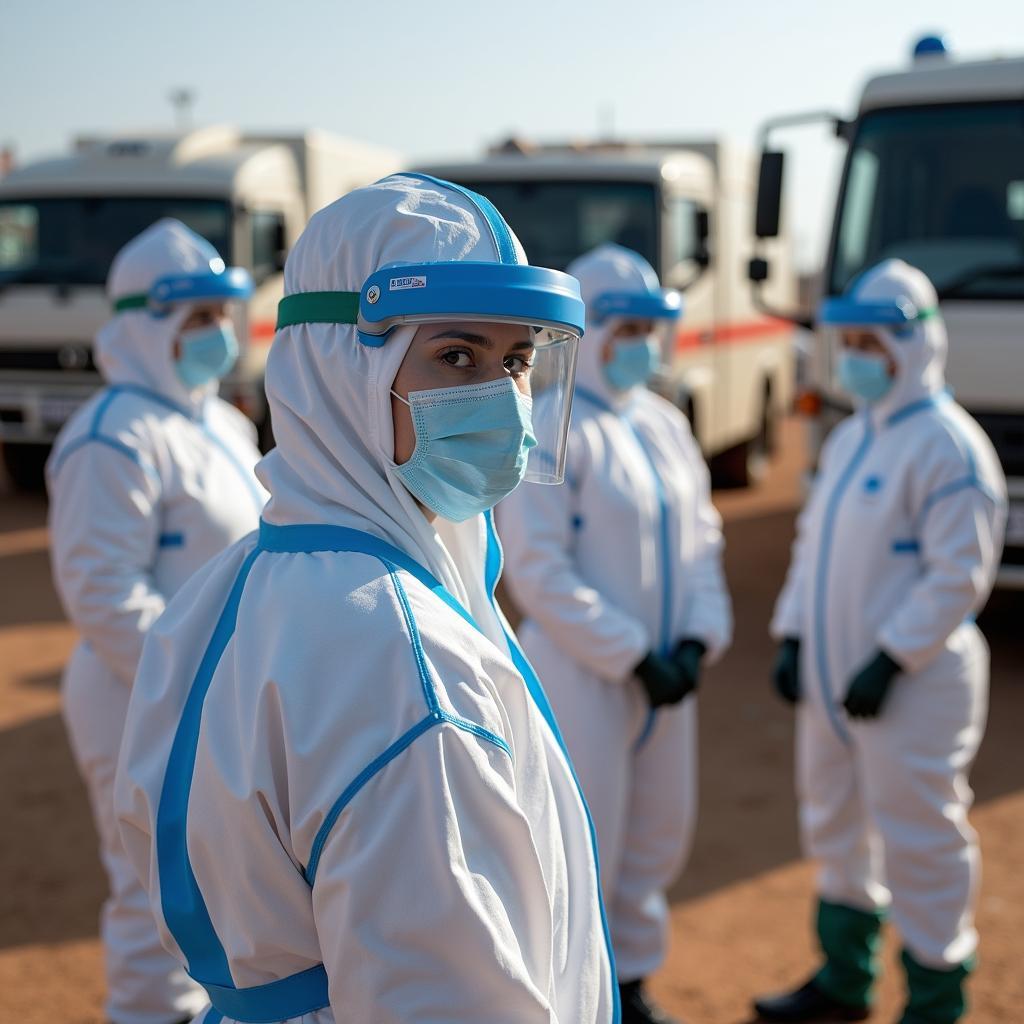The IELTS Reading section is one of the most challenging parts of the IELTS exam, requiring both efficient reading skills and a deep understanding of the text. This article will provide not just a reading practice based on a trending topic but also an analysis and strategic approach to mastering this section of the IELTS exam. Given the current global health situation, understanding how global health organizations respond to new virus outbreaks has become more relevant than ever.
Nội dung bài viết
Reading Practice: Understanding Global Health Organizations’ Response to New Virus Outbreaks
Reading Passage
Global health organizations play a crucial role in managing and mitigating the effects of new virus outbreaks. These organizations, such as the World Health Organization (WHO), the Centers for Disease Control and Prevention (CDC), and Médecins Sans Frontières (MSF), implement various strategies to address these challenges effectively. Their responses include early detection, rapid response, research, public communication, and collaboration with national and local health authorities.
Early Detection: One of the primary steps in controlling a virus outbreak is its early detection. Organizations use advanced surveillance systems and collaborate with local health departments to identify potential outbreaks. For instance, during the Ebola outbreak in West Africa, the WHO deployed teams to assess the situation and gather data on the virus’s spread.
Rapid Response: Upon detection, a rapid response is critical. This involves deploying medical personnel, supplying necessary medical equipment, and establishing quarantine zones. The CDC, for instance, has specialized teams trained to handle outbreaks and can be deployed internationally at a moment’s notice.
 Global health organization's rapid response team in protective gear managing a new virus outbreak effectively.
Global health organization's rapid response team in protective gear managing a new virus outbreak effectively.
Research: Continuous research is vital for understanding new viruses and developing vaccines. Organizations often collaborate with research institutions globally. The swift development of COVID-19 vaccines is a testament to the power of global research efforts.
Public Communication: Clear and transparent communication with the public is essential to prevent panic and misinformation. Health organizations provide regular updates through press releases, social media, and official websites.
Collaboration: Working with governments, NGOs, and other stakeholders is essential for an effective response. Organizations like MSF often collaborate with local authorities to provide medical care in under-resourced areas.
Questions
Multiple Choice
- What is the primary goal of early detection by global health organizations?
a) To prepare medical equipment
b) To identify potential outbreaks
c) To communicate with the public
d) To establish quarantine zones - How do organizations respond rapidly to a new virus outbreak?
a) By developing new vaccines
b) By public communication
c) By deploying medical personnel and equipment
d) By conducting advanced research - How do health organizations ensure clear communication with the public?
a) Through press releases and social media updates
b) By deploying rapid response teams
c) By conducting early detection
d) By collaborating with local authorities
True/False/Not Given
- The WHO was involved in handling the Ebola outbreak in West Africa. (True/False/Not Given)
- The CDC can deploy trained teams internationally. (True/False/Not Given)
- Médecins Sans Frontières focuses only on providing medical care in wealthy nations. (True/False/Not Given)
Answers
- b) To identify potential outbreaks
- c) By deploying medical personnel and equipment
- a) Through press releases and social media updates
- True
- True
- False
Common Mistakes and Tips
Many candidates often struggle with differentiating between similar-sounding information, leading to incorrect answers, especially in Multiple Choice and True/False/Not Given questions. Here’s a tip: always go back to the passage and locate the sentence or paragraph to verify your answer instead of relying on memory or assumption.
Vocabulary
- Surveillance (n): The careful watching of a person or place. Phonetic: /sərˈveɪləns/
- Mitigate (v): Make less severe, serious, or painful. Phonetic: /ˈmɪtɪɡeɪt/
- Collaborate (v): To work together with someone for a special purpose. Phonetic: /kəˈlæbəreɪt/
- Expansion (n): The action of becoming larger or more extensive. Phonetic: /ɪkˈspænʃən/
Grammar Focus
Complex Sentences: These are sentences that contain an independent clause and at least one dependent clause. They are often used in academic texts to convey detailed information or elaborate on points.
Example:
- The WHO deployed teams to assess the situation because early detection was critical. (Independent Clause + Dependent Clause)
Conclusion & Advice
To excel in your IELTS Reading test, familiarize yourself with a wide range of topics, particularly timely and relevant issues like global health. Practice regularly with passages of varying difficulties and enhance your reading strategies for a distinguished performance. Remember to read carefully, verify your answers, and use the provided vocabulary and grammar tips to improve your comprehension skills.


